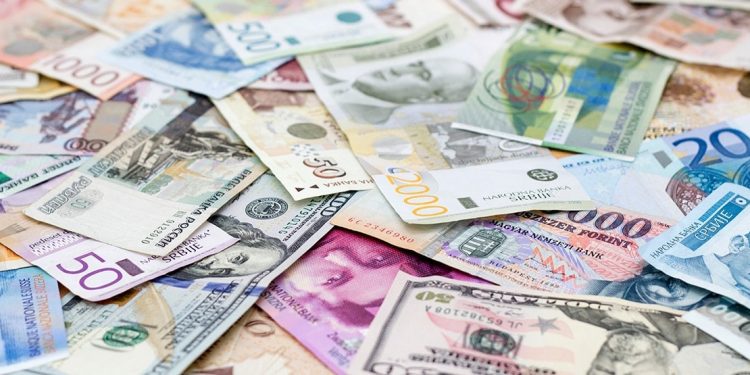Be Better Prepared With These Top Pieces of Money Advice for Travelers
Put Money Worries Aside and Enjoy Your Trip to the Fullest
When you’re planning a trip, money probably only comes to mind in terms of how much money it’s all going to cost. You spend so much time focusing on getting the best deal that you altogether forget to consider other sides of the money equation that might come up during your adventures abroad.
There are many things regarding money you should know before taking off to a foreign country. Heading off any questions you might have about money in advance will help you have a smoother trip so you can focus on your experiences and not on whether you are making any mistakes with your savings.
Here are the money travel tips you need to be aware of before you go!
How Much Cash to Bring
If you’re traveling to a foreign nation, odds are you won’t be able to use your home currency. Of course you may need a little cash before you arrive for things such as tipping a shuttle driver or small purchases such as a drink.
But many people make the mistake of believing they should bring a wad of cash in their destination’s currency, and visit their bank or another establishment to get it while still in their home territory. The problem with this is that while foreign currency is readily available at most local banks as well as the airport, it often comes with a very high exchange rate as well as transaction fees.
There is no need to exchange currency before you travel. Why? These days, there are ATMs throughout the world, and in just about every airport on the planet.
Using your debit card to get cash at an ATM once you arrive is generally the most convenient and the least expensive option.
How Much Cash to Get Out
In most destinations, you’ll be able to use your debit or credit card just about everywhere you go, with some exceptions, of course. Some mom-and-pop businesses, including shops, restaurants and B&Bs, are cash only.
If you’ve already booked accommodations in advance, you can find out before you leave if you’ll need to pay in cash and proceed accordingly.
As there are fees associated with ATM use, you don’t want to be hitting one every day, but it’s also not the best idea to be running around with large amounts of cash on hand. Do your best to plan ahead, and get out enough to keep you going for a few days at a time.
Think about little purchases, like that cup of coffee, or trinkets sold at a market you might need cash for, but use your debit or credit card whenever you can. Plus, depending on the tipping customs of your destination, it can be nice to have some change on hand for those situations where you want to show your appreciation.
Debit versus Credit Cards
Credit cards can be used overseas just like they can at home. And, provided your debit card is linked to a major global credit card company, you won’t run into any issues making withdrawals.
It’s much easier to use a card rather than cash because the fees for getting cash out of an ATM are generally much higher than the fees associated with using a card. Most banks charge an average transaction fee of $3 to $5 plus 1% to 3% of the withdrawal amount, which generally comes close to the current wholesale exchange rate.
Verify how much your bank will charge before leaving. If the fees are much higher, it may be worth opening up an account with a different bank before you leave, even if it’s just for the duration of your trip.
Of course, the difference between using a credit card or debit card is just like it is at home. Debit card charges will come directly out of your bank account, while using credit cards often means you’ll have a large bill to (not) look forward to when you get home.
At the same time, many credit cards offer points, miles and the like that can make using them beneficial. They also often include the opportunity to get emergency cash, should the need arise.
Be sure to check the fine print of your existing credit cards to see if they charge a foreign currency transaction fee as well. Many don’t. If you don’t have one, it may be worth it to look into getting a more travel-friendly card, considering that a mere 2% foreign currency transaction fee will end up eating money that you could have spent on that unforgettable excursion.
There are a couple of other things to keep in mind when taking your cards with you during your travels as well. Call your bank first to let them know when and where you’re going so they don’t block it for fraudulent use.
Many banks will allow you to do this online. And, before you leave home, write down your credit card’s numbers and the bank’s phone number, so you’ll have that information in case they’re lost or stolen.
Thinking about traveler’s checks? Few use them anymore as they tend to be a waste of time and money: there are fees to get them as well as fees to cash them.
A little bit of rain shouldn't ruin your vacation of a lifetime! Keep these things to do on a rainy day in mind next time you are in a tropical location.
Currency Tips
Every currency system around the world is decimalized like ours, so they’re usually pretty easy to figure out — only the names are changed. When you get some cash, take a look at all of the coins and paper money to get familiar with what it looks like so you don’t have to spend an exorbitant amount of time trying to determine what’s what when you’re at the cashier.
XE Currency is a must-have travel app for real-time conversions. But most of the time just knowing the rough exchange rate will get you by just fine.
For example, say $1 is 1.25 Euro — that means $10 is about €12.50 and $100 is €125. You could even quiz yourself while on your flight to get more comfortable with the local currency before you arrive.
In general, Eastern European countries have a much better exchange rate for U.S. citizens than their Western counterparts. The Euro is actually worth more than the American dollar, as is the British Pound. Before you purchase something, convert it into your home currency first to see if it’s a fair price or not. If you wouldn’t spend that much on it in at home, you’re probably better off not buying it.
Inform Credit Card Companies of Your Travel Plans
Whether you are traveling out of state or to another country, it’s necessary to alert your bank and credit card companies of your travel plans. Any changes in your spending habits will trigger a fraud alert, which can put a freeze on your account.
If you’re abroad, that can mean expensive phone calls to the bank in addition to getting stuck without access to your money. This is one piece of travel money advice you don’t want to overlook!







